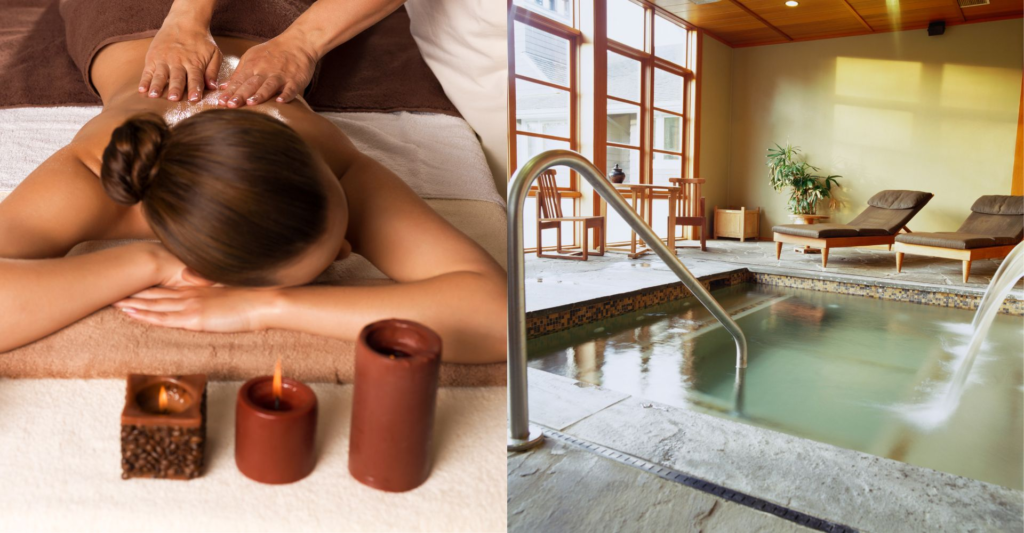Description of Wellness Organisation Levels
To ensure that wellness organizations (such as wellness centers, wellness spas, hotels with wellness centers, and wellness studios) meet the highest industry standards and provide quality services to their clients, specific criteria must be met for accreditation. Below are the key criteria for accreditation for each type of wellness organization.
Common Criteria for all Wellness Organisations
5.1. Professionalism & Ethics:
- Code of Conduct: Wellness organizations should have a clear code of conduct in place for staff, which includes ethical guidelines, professionalism, and client care.
5.2. Staff Training & Education:
- Continuous Education: Staff members should regularly participate in training and educational programs to stay updated with the latest wellness trends and best practices.
- Wellness Certifications: Instructors and therapists should hold relevant certifications from recognized professional bodies in the wellness industry.
5.3. Client-Centered Services:
- Customer Experience: Wellness organizations must prioritize client satisfaction, offering excellent service, personalized attention, and a focus on meeting wellness goals.
- Inclusive Practices: Wellness organizations should foster inclusivity by offering services that accommodate a range of clients, including individuals with different health conditions or fitness levels.
LEVEL 1 - BASIC
Wellness Studio Accreditation Criteria
4.1. General Criteria:
- Licensing and Insurance: The wellness studio must be properly licensed to operate in its location and hold appropriate liability insurance.
- Certified Instructors: Instructors in the wellness studio must have relevant certifications, such as certified yoga teachers, Pilates instructors, or fitness coaches.
4.2. Wellness Offerings and Services:
- Specialized Wellness Programs: The studio must offer specialized programs like yoga, Pilates, meditation, fitness, or other wellness-focused activities.
- Class Variety and Scheduling: A variety of classes should be available, catering to different skill levels (beginner to advanced), and convenient class schedules to accommodate clients.
- Equipment and Facility Standards: The studio must be well-maintained, with quality equipment and a clean environment.
4.3. Client Care and Personalization:
- Individualized Wellness Plans: Wellness studios should offer personalized plans or assessments for clients to track their progress and achieve wellness goals.
- Supportive Environment: The studio must create a supportive and welcoming environment where clients feel comfortable and motivated.
- Feedback and Improvement: Mechanisms must be in place to gather client feedback and ensure continuous improvement in classes and services.
4.4. Ethical & Safety Practices:
- Safety Standards: Instructors must prioritize safety during sessions, ensuring that exercises are performed with proper form and attention to physical limitations.
- Confidentiality: The wellness studio must maintain client confidentiality, especially in any wellness assessments or consultations.

LEVEL 2 - INTERMEDIATE
Wellness Spa Accreditation Criteria
2.1. General Criteria:
- Licensing and Insurance: The spa must comply with all relevant licensing and insurance requirements, including liability insurance.
- Trained and Certified Staff: All therapists, estheticians, and other personnel must be certified in their respective fields (e.g., massage therapists, aestheticians, wellness practitioners).
2.2. Spa Services and Treatments:
- Comprehensive Services: The wellness spa must offer a wide range of wellness treatments, such as massages, facials, body treatments, hydrotherapy, and spa therapies.
- Quality Products: The spa must use high-quality, safe, and reputable wellness and beauty products for treatments.
- Customization of Treatments: Ability to offer tailored services to meet individual health and wellness goals, such as relaxation, stress relief, skin care, and detox.
2.3. Health & Safety Standards:
- Sanitation: Strict adherence to hygiene and sanitation protocols, including the use of clean linens, sterilized equipment, and proper handling of products.
- Environmental Safety: Ensuring a safe environment, including proper ventilation, lighting, and non-toxic products for spa treatments.
2.4. Client Care:
- Personalized Consultation: Initial consultations should be offered to clients before starting any treatment, assessing their needs, health conditions, and wellness goals.
- Privacy and Confidentiality: The wellness spa must have measures in place to protect client privacy and sensitive personal information.

LEVEL 3- ADVANCED
Wellness Center Accreditation Criteria
1.1. General Criteria:
- Licensing and Registration: The center must be legally registered and licensed to operate in its location.
- Health & Safety Standards: Compliance with local health and safety regulations (including fire safety, sanitation, and medical standards) is required.
- Insurance: The wellness center must hold appropriate insurance for liability and professional indemnity.
- Staff Qualifications: Wellness practitioners, trainers, and other staff must have appropriate qualifications and certifications in their fields of expertise (e.g., yoga instructors, nutritionists, fitness trainers).
1.2. Wellness Programs and Services:
- Variety of Services: The center must offer a range of wellness services, including physical fitness programs (yoga, Pilates, personal training), holistic treatments, wellness coaching, and more.
- Customizable Wellness Programs: Programs should be tailored to meet individual client needs, supporting different wellness goals (e.g., weight loss, stress management, fitness).
- Facility Standards: The wellness center must maintain high-quality, safe, and clean facilities, including appropriate equipment and tools for fitness or therapy services.
1.3. Client Satisfaction & Feedback:
- Feedback Mechanisms: The center must have a system in place for gathering client feedback to improve services.
- Quality of Service: Evidence of high client satisfaction through testimonials, reviews, and return clients.
1.4. Ethical Practices:
- Confidentiality: The center must maintain client confidentiality and protect personal health information.
- Sustainability: Commitment to sustainability practices, such as using eco-friendly products, reducing waste, and promoting wellness in harmony with the environment.

